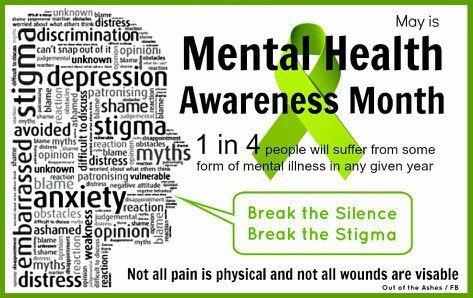“You’re Just Stressed Out;” Dismissing Pain as Fake (#HAWMC)

Well that’s just crazy! What’s the most ridiculous thing you’ve heard about your health condition? Was there any context? What did you think at the time you heard it – and what do you think of it now?
MY ANSWER: “You’re just stressed out!”

Roadblock to Treatment: Discrimination
People with diagnosed mental illnesses can have a hard time getting a diagnosis and treatment for more visible illnesses. (It should be noted that even many people who have no history of mental illness, have been easily dismissed.) Mental health discrimination is a roadblock to being treated with dignity. As someone who lives with bipolar II (diagnosed at 18-yrs old), polycystic ovarian syndrome (19), Myasthenia Gravis (24), and asthma (24), I know this all too well.
I’ve heard countless stories of discrimination from people with cancer, Multiple Sclerosis, lupus, Sjogren’s, and fibromyalgia. In 2008 I faced
discrimination when I tried to get help for Myasthenia Gravis (MG), a neuromuscular autoimmune disease. By September, I had all but one of MG’s symptoms (difficulty breathing); relatives who are doctors call me a “textbook case.” I saw my primary physician twice between August and September of 2008. Let’s call her “Dr. M-Ron.” At my August visit, I told her that I was tired all the time and that I had to manually pull up my eyelids because they kept drooping (ptosis).
Weeks later, when I was climbing up a long flight of stairs at work, I started falling. And falling. I couldn’t get up because I could not feel anything below my waist. I returned to Dr. M-Ron with this information and recalled the multiple times I fell down during yoga. I also told her about how I sometimes couldn’t feel my legs or arms at all. I described my problems speaking coherently (which she could see for herself) and trouble swallowing food (dysphasia). What did the doctor tell me? She said, “You’re stressed out.” I knew this woman had flipped! I told her, “With all due respect, I’m not stressed or depressed. If this was stress, then millions of Americans should be falling down the stairs at work and school because life is inherently stressful.” A simple blood test would have revealed I had MG but she did not order it. I persevered. In October, I saw a neurologist who immediately diagnosed me with MG. The neuro also ordered a blood test, which decisively confirmed MG.
Critical Condition
On October 10th, just four days after I was diagnosed with MG, I was already in Myasthenic Crisis and hospitalized for two weeks. By that point, I was too weak to breathe, feed myself, and bathe myself—consequences of the late diagnosis. When I obtained Dr. M-Ron’s notes from my visits, I learned that she wrote, “Patient has Multiple Sclerosis, Miesthenia Gravis, or stress?” (Yes, despite being a doctor, she couldn’t spell my illness!) Again, despite her suspicions, Dr. M-Ron never ordered the test. (Later, I reported her negligence to the insurance company.) Basically, mental health discrimination almost killed me.
Today I have physicians that listen to me. Since 2009, I’ve had a fantastic neurologist who is a renowned expert on Myasthenia Gravis (and Sjogren’s). Here’s what I learned.
Tips for Dealing with Mental Health Discrimination:
- Persevere: Some people are just awful (I want to use another word here but my mother reads this blog). We can’t change everyone. Reasoning with doctors who are dismissive (including one from a famous clinic) has never worked for me. If a doctor doesn’t respect you, find someone who does. (Yes, I know it’s easier said than done.) I have improved with MG because my neurologist of four years listens to me.
- Be Wise in Sharing Mental Health History: I talk about my bipolar disorder when I see my therapist, which is part of why my bipolar disorder is under control. When I saw an ENT (Ears, Nose, Throat Specialist) last summer because of problems with my nose and ears, I didn’t discuss my bipolar disorder because it was irrelevant. I got a swift diagnosis. Without it, I might be deaf now.
Stay tuned! Tomorrow, we continue the Health Writer’s Activist Month Challenge.
Meet Other Warriors on Facebook
“Like” our page at: https://www.facebook.com/fashionablyill
–Your Stylist, Jessica Gimeno








